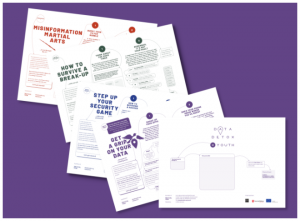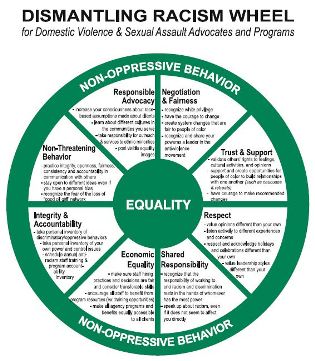Resources Library: Model Policies & Best Practices
Start a Search:
Cultivating SART Efficacy: Insights on the Impact of the Virginia Sexual Assault Response Team Mandate Report
The Virginia Department of Criminal Justice Services (DCJS) is pleased to release the report, Cultivating SART Efficacy: Insights on the Impact of the Virginia Sexual Assault Response Team Mandate. A collaborative effort between DCJS and the Sexual Violence Justice Institute at the Minnesota Coalition Against Sexual Assault (SVJI), the project explored the implications of the 2009 Code of Virginia legislation (§ 15.2-1627.4) that mandated the establishment of a multidisciplinary response to criminal sexual assault in each locality.
As you’ll see in the report, numerous considerations are presented to further enhance Sexual Assault Response Team (SART) efforts in Virginia. In the coming months, DCJS will begin exploring these considerations through a variety of collaborative efforts, to include training, resource development, SART protocol revisions, and more. We look forward to helping SARTs throughout Virginia become more efficient, more effective, and better able to serve victims of sexual assault.
A summary of results from the full national project is also available here.
Culture, Language, and Access: Key Considerations for Serving Deaf Survivors of Domestic and Sexual Violence
This policy and practice brief summarizes the findings from work with the Deaf community and offers practical suggestions for increasing Deaf survivors’ access to victim services and other supports, including those offered by the criminal justice and medical systems. This information providse a framework for meeting the needs of Deaf survivors that is grounded in the cultural and linguistic needs of this community. It will also ground policymakers, practitioners, and first responders in the victim services field in the realities of this often-overlooked community.
Data Detox x Youth

Data Detox x Youth is an activity book to help young people take control of their tech. This interactive toolkit encourages young people to think about different aspects of their digital lives, from their social media profiles to their passwords, with simple activities for reflection and play.
The activity book contains four sections:
- Digital Privacy, which focuses on reducing data traces and understanding online profiling;
- Digital Security, with tips on creating strong and secure passwords;
- Digital Wellbeing, which deals with the addictive nature of smartphones;
- and finally Misinformation, a guide for consuming and sharing information online.
The toolkit is designed for 11 to 16-year-olds who already have their own devices, but it can be used by people of all ages. All you need is a smartphone or a tablet, a printer and something to write with.
Places where the Data Detox x Youth could be used:
- In a classroom (or virtual classroom)
- At home
- By youth groups and organisations (e.g. in a workshop)
Also available in العربية (Arabic), Basque, Brazilian Português, Čeština (Czech), Deutsch, Español, Ελληνικά (Greek), Italiano, Nederlands, Norsk, Português and Shan.
Developmental Impact of Child Victim of and/or Witness to Interpersonal Violence
This handout was provided by Linda Swimm, a private practice therapist, at the workshop titled "Children's Services" at the Virginia Department of Social Services Office of Family Violence Promising Practices conference held on September 16, 2013.
Dismantling Racism Resources

Two wheels created by the Women of Color Caucus and Social Justice Task Force of the Virginia Sexual and Domestic Violence Action Alliance. These wheels were created in the tradition of the Power and Control Wheel created by the Domestic Abuse Intervention Programs of Duluth, Minnesota. The Perpetuating Racism Wheel demonstrates how agencies might use power and control to perpetuate racism. The Dismangling Racism Wheel demonstrates how agencies can use principles of equaliaty to dismantle racism within their agencies.

